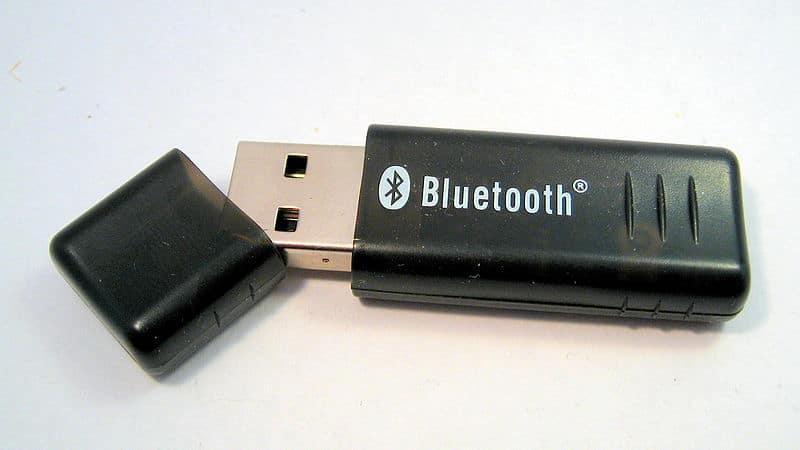Jasmine Birtles
Your money-making expert. Financial journalist, TV and radio personality.


If you’re not used to mobile broadband then you might imagine that it gives you painfully long loading times and constant disconnecting.
But actually, mobile broadband is now really good and can even be better than the internet you have at home. Some people don’t even bother with home broadband now – they just go straight for a mobile contract.
But of course signing up for mobile broadband is going to cost, and that could be on top of your existing mobile contract and your home phone and broadband contracts. This can all add up, so it’s important to get the best mobile broadband deal to keep costs down.
We’ve come up with four ways to get cheaper broadband on the go.
 If you’re not in the know, broadband is what allows us to use the internet, whether it’s searching through websites or getting your latest emails.
If you’re not in the know, broadband is what allows us to use the internet, whether it’s searching through websites or getting your latest emails.
Mobile broadband allows you to do exactly the same thing only, as you may have guessed, you can access the internet everywhere, not just in your home or at your work office.
Whether you’re on a train and want to read your emails or it’s a sunny day and you’d rather browse your favourite websites outside, mobile broadband lets you access the internet wherever you want.
There are three main ways you can connect to a mobile network:
 There’s a wide variety of mobile broadband deals available so you’ve got plenty of flexibility when it comes to choosing a package that suits your budget and requirements.
There’s a wide variety of mobile broadband deals available so you’ve got plenty of flexibility when it comes to choosing a package that suits your budget and requirements.
The key is selecting a deal which provides the most suitable data usage allowance for your money. Your data usage allowance is like minutes or text allowances on a mobile phone, the data limit of a mobile broadband package will determine how much internet you can use before you have to start paying extra.
To keep costs down you never want to be using more data than you pay for as part of the package. This is especially important if you’re on a fixed income and need bills to be predictable.
 Paying for a long term contract for your mobile broadband will often give you the most data allowance for your money.
Paying for a long term contract for your mobile broadband will often give you the most data allowance for your money.
Long term contracts will also usually come with a free dongle.
The downside to a long term contact is you have to pay the fee until the contract ends and if you choose to cancel the contract before it is over then you will be forced to pay a charge.
For this reason you need to make sure you’ll be able to make the monthly payments and be confident you’ll definitely need the mobile broadband for the time of the contact.
 If you don’t need mobile broadband long term but perhaps just need mobile internet access for a few months (for example, having internet access in between moving homes) then a rolling monthly contract will best suit you.
If you don’t need mobile broadband long term but perhaps just need mobile internet access for a few months (for example, having internet access in between moving homes) then a rolling monthly contract will best suit you.
These 30 day ‘or no contract’ deals are a middle ground between contract and pay as you go, where there’s a fixed data allowance and monthly fee but you’re never committed for more than a month at a time.
It is also, as you might have guessed, a middle ground in price. You will probably be able to get a higher data allowance for your money than you would with a pay-as-you-go, but the cost would be higher per month than a fixed contract. Basically, you’re not guaranteeing them your custom beyond the month so they are charging you more.
 Pay-as-you-go (PAYG) is the most flexible way to pay for your mobile broadband. You only have to pay for what you use and if you run out of money then you won’t be required to spend anything (although you’ll have no mobile broadband).
Pay-as-you-go (PAYG) is the most flexible way to pay for your mobile broadband. You only have to pay for what you use and if you run out of money then you won’t be required to spend anything (although you’ll have no mobile broadband).
For this reason PAYG is perfect if you’re on a tight budget and/or you only need to use mobile broadband occasionally as you won’t be paying for data that you don’t use.
The only downside is you’ll be paying a higher price for your data than you would be doing with a contract, but if you only need to use the internet every so often then this may work out the cheapest deal for you.
Find the cheapest mobile broadband deal for you here.

 Another way to save money is to purchase your own hardware and then take advantage of SIM-only deals, which can offer excellent value for money.
Another way to save money is to purchase your own hardware and then take advantage of SIM-only deals, which can offer excellent value for money.
This is a really good idea with mobile phones as it can save a lot over the life of a contract, and while it’s not quite as important with mobile broadband it can still spare you a few quid. It’s also handy when you want to swap providers – mobile broadband hardware doesn’t move at quite the same pace as phones so a dongle can last many years.
When shopping for a dongle look out for a model which comes unlocked for use on all networks. Dongles can be unlocked but this will cost you extra money, so spare yourself that additional expense from the beginning.
How much you pay for mobile broadband depends on how much data you use so you need to keep an eye on how much you (or anybody else) is using. The last thing you want to find out is that you’ve gone over your data allowance limit or you’ve used all you’re PAYG data and don’t have any way to top up.
If you’re just visiting websites or checking over your emails then you won’t be using much data and will probably be fine to get by with just a couple of gigabytes per month.
However if you’re streaming lots of funny cat videos, catching up on the latest episode of Eastenders on iPlayer or listening to your favourite band on Spotify then you’re going to be using a lot more data. Downloading files, uploading and playing online games can be very draining on your data as well.
Your mobile broadband dongle software should include a feature to monitor how much data you’re getting through, so keep an eye on that to make sure you don’t go over the limit and get hit with extra charges.
There are also free tools for Windows, Mac OS X and Linux which can monitor and log traffic, but keep in mind that this will only provide data on the Laptop or Netbook. If your network say you’ve used more data than you think you have, they won’t accept that as proof.
 Taking your mobile broadband connection out of the country is always a costly business and something you should look into thoroughly before going.
Taking your mobile broadband connection out of the country is always a costly business and something you should look into thoroughly before going.
It’s not quite as expensive as it once was, particularly within the EU where you shouldn’t pay more than about 20p per megabyte, but elsewhere it can be as much as £6 per MB. You can find more information on the cost of internet access worldwide by using Broadband Genie’s roaming world map.
If you do need to use your mobile broadband abroad then it is worth asking your network exactly what the costs are going to be. You could also ask if they are offering any special deals for international usage as these can be a lot cheaper than paying the standard per-MB rate.
